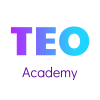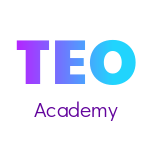My Take on the Gen Z Paradox: Ambitious, Anxious, and Ready for a New Way of Working
I spent some time this week with the latest "Gen Z Workplace Blueprint" from Randstad, a compelling look into the pressures facing the newest generation of talent. It reveals a generation caught between huge ambition and a challenging reality.
Last updated: 9 September 2025
The Disappearing First Rung on the Ladder
One of the most sobering realities the report highlights is the erosion of traditional entry points into a career. We’re seeing a steady decline in entry-level roles across sectors. For a generation eager to get started, that first step is becoming harder to reach. If you work in HR or education, I highly recommend giving the full report a read—you can download it here.
29 Point Drop
Entry-level job postings (0-2 years' experience) have fallen by 29 percentage points since January 2024.
Tech Sector Hit
The decline is sharp in sectors Gen Z prefers, with junior roles in tech down by 35 percentage points.
Finance Sector Squeeze
Finance has also seen a 24 percentage point reduction in entry-level opportunities.
The Gap Between Confidence and Reality
This challenging market seems to be fostering a strange mix of self-belief and self-doubt. The data shows a generation that feels ready to learn, but their real-world experience tells a different story.
Confident Learners
A huge 79% of Gen Z members are confident in their ability to learn new skills quickly.
Rejected for Roles
Yet, a staggering 46% of Gen Z talent report being rejected for a job because they didn't have the right skills.
Lacking Confidence
Furthermore, 41% say they don't have the confidence to find another job—the largest share among all generations surveyed.
Worried by AI
While they are avid users, 46% are now worried about AI’s long-term impact on their careers.
Short Stints Driven by Long-Term Ambition
It’s easy to look at Gen Z’s average job tenure—just 1.1 years in the first five years of their career—and label them as disloyal. But the report suggests it’s not that simple. This generation is the most likely to "always" consider their long-term career goals when evaluating a new role. Their tendency to change jobs is often a direct reaction to unmet expectations and a lack of clear opportunities for progression. They aren't just job-hopping; they are actively searching for a place that will invest in their future.
Reading this, it’s clear to me that technical knowledge isn't enough to thrive. The report urges employers to invest in modern learning strategies to build confidence and create an equitable culture. This isn't just about software training; it’s about developing the core human skills—critical thinking, creativity, and clear communication—that allow young talent to navigate this new landscape.
This is where great teachers and mentors become invaluable. They are the ones who can bridge the gap between raw ambition and real-world readiness, building the confidence that the data shows is so sorely needed.
See How You Can Make a Difference
Ready to Be Part of the Solution?
The report concludes that Gen Z isn't a problem to be solved but offers a "new blueprint for what work can become". The challenge for all of us—employers, leaders, and especially educators—is to build the pathways that harness their ambition.
Join Our Team of Teachers





